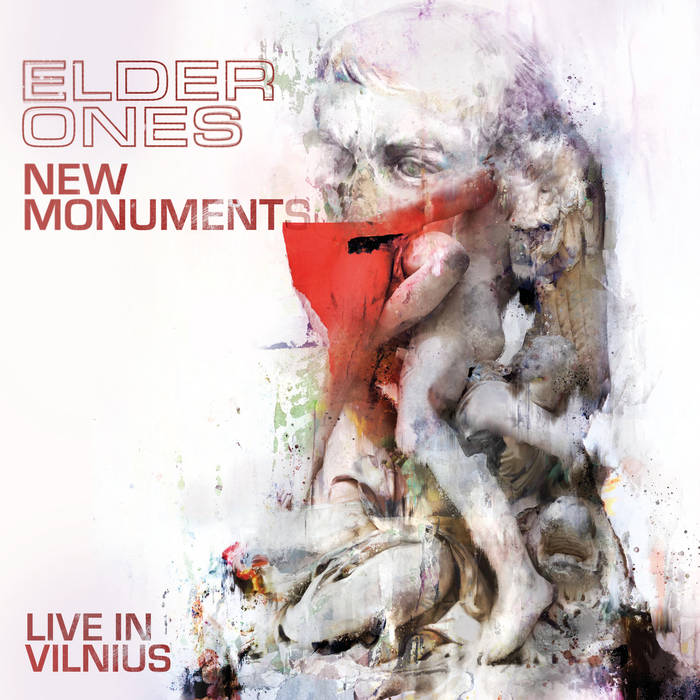Amirtha Kidambi’s Elder Ones project has been releasing music for almost a decade. The group immediately set itself apart from the greater avant-garde jazz world for a variety of different reasons. There’s Kidambi’s incorporation of synthesizers and harmonium, her steadfast refusal to let the politics of her music take a backseat, and most notably, her endlessly captivating and dynamic voice, an elastic force shaped by her backgrounds in new music, Carnatic classical music, free jazz and punk. But there’s an additional element that, simple as it may be, is perhaps most crucial to why no other jazz group today sounds like Elder Ones: the energy.
Elder Ones has the touch of danger that feels missing from the sometimes overly-arranged and polished NYC avant-garde jazz scene, which is all the more impressive considering that even in its live form, Elder Ones does not make skronky, cacophonous free jazz. In fact, they don’t really make free jazz at all. Their music is very composition-centric and intentional in what it sets out to achieve, and Live from Vilnius does not deviate much from the compositions of its studio counterpart New Monuments. Where it does deviate is in its lineup, with tenor saxophonist Alfredo Colon taking the place of bassist Eva Lawitts, and the degree to which it stretches out the compositions, clocking in at twenty-plus minutes longer than New Monuments.
The sprawl of the performance reaffirms that, on top of everything else, the group can fucking cook. On the soprano saxophone, Matt Nelson is as malleable as his playing is dissonant, able to warp and contort itself with every left-turn the music makes. Drummer Jason Nazary is perhaps the glue of the group, blowing through intricate runs with both breakneck speed and textural precision. But even as the performances extend into free-form improvisation, Kidambi is always a force of nature as a vocalist. Her extensive, uniquely multifaceted musical background allows her to vocalize with a rare sense of control and authority, and when she ventures into her most abstract vocal regions she does so in a manner that is startling in the best possible sense.
When listening back to the canonical avant-garde records of the 60s and 70s, by legendary figures such as Albert Ayler, Don Cherry, Frank Lowe and Noah Howard, it’s the energy that feels most inimitable. The music evokes a bag of spirits shaken up and set loose in the room, driven by a sweaty, invigorating life force that can evoke jubilation and panic sometimes in the same breath. That duplicity, in my eyes, is what makes it the defining music of its time, a period in which the opportunity for radical hearts and minds to take the reins of a world seemingly up for grabs was undercut by the trauma of a dream deferred. In other words, it’s an energy that feels needed now more than ever.


